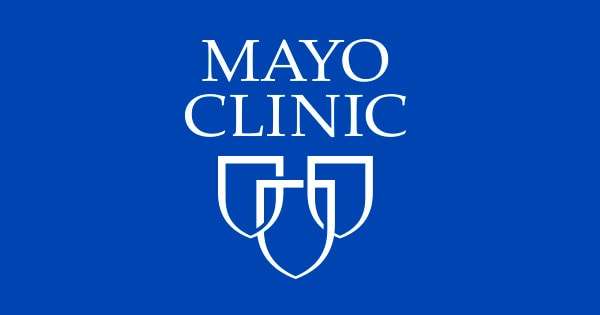We know that navigating Ontario’s complex mental health care system can be daunting, so here’s some useful info that can help.
Making the decision to start therapy is stressful enough. Figuring out how to pay for it shouldn’t be an added stressor. That’s why we’ve put together this outline of what is and isn’t covered by the Ontario Health Insurance Plan – OHIP.
There is no easy answer to whether therapy is covered by OHIP. Sometimes yes, sometimes no…
Part of the problem in answering this question is that there are a number of different regulated health professionals who all offer therapy. These professionals have different training, educational backgrounds and titles. Plus, there are different words that people use to describe therapy: for example therapy, counselling, psychotherapy, or psychological therapy. All these terms refer to “talk therapy” as opposed to pharmacological or drug-based therapy. Drug-based therapy is covered by OHIP but if you’re looking for talk therapy, covered services are much harder to find . If you’re fortunate enough to have a job that offers an extended benefits plan, you may have therapy covered through this plan. But even then, this mix of public insurance (OHIP) and private insurance can be confusing. Let’s talk about OHIP therapy coverage in Ontario.
Talking about my problems
How can talking to a mental health care provider help?
Talking to someone about your difficulties us oine way to get help with a mental health problem. Sometimes it is enough to talk to a family member or friend who will listen and be supporitive. But if your problem continues, it may help to speak to someone who is not connected to your life – a mental health care provider with a neutral point of view, and with whom you feel safe.
How much will treatment cost?
Treatment from a psychiatrist or GP is covered by public health insurance (such as OHIP in Ontario), and will not cost you anything. Other mental health care providers, such as psychologists and social workers, may also be free if they work in government-funded hospitals, clinics or agencies or an employee assistance program. If psychotherapists work in a private practice, their services will not be covered by public health insurance, and you will be charged a fee.
How will I know if treatment is working?
As part of your therapy, you will set goals for what you would like to change. If you meet these goals over time, the therapy is probably working.
It is important for your recovery that there is a good relationship between you and the therapist. You may need to try more than one therapist to find one you are comfortable with.
Results do not necessarily happen overnight. In fact, you may feel worse at the start as issues are brought to the surface.
Are there community supports to help me?
Here are some examples of programs that can support you, depending on where you live and what you need.
Mental health agencies can help you find services and resources in your community.
Self-help or mutual aid groups are made up of people who share the same issue or mental health problem, either in themselves or in a family member.
Community information centres can give you information about services in your area, such as day care, health care, immigration, housing, sexual assault, and mental health agencies.
Consumer/survivor initiatives are run by and for people who use or have used the mental health system. They offer education, information and support.
Alcohol and other drug treatment services may offer programs from people who have both an addiction and mental health problem.
Distress Lines, such as 911, put you in touch with people who can help you in an emergency. You can find other local numbers in the front of the telephone book.
You may want to ask about specialized services that are sensitive to your age (for example, for youth or older adults), gender, sexual orientation, race or culture. If you live in a small community, however, these options may not be available.
Taking the first step by deciding to seek mental health support is a huge accomplishment. Whether you’re new to therapy and counselling or are looking for new resources to support your mental health, we know it can be difficult to navigate the variety of options.
There are a few things about therapy that are generally helpful to know as you get started, such as how to find the right therapist fit, the difference in therapist titles (a.k.a designations) and the different kinds of therapy techniques (modalities). But, bottom line, we know that understanding costs for therapy is important, including coverage through private or workplace insurance plans, or finding low-cost, free, or government-funded options (including through public healthcare plans) is important—and it can be a daunting part of the process.
Therapy and publicly funded healthcare
Generally, if someone is treated for mental health needs through a medical or hospital visit, treatment is covered. There are some family doctors (general practitioners or GPs) who are trained and licensed to offer psychotherapy. In this case it would be covered by public health, but those MDs are scarce.
Visiting a psychiatrist via a doctor’s referral (for a prescription or further assessment) will also be covered—it’s important to know that most psychiatrists will only provide a diagnosis for a mental illness or drug therapy interventions (a prescription). This may not be what you’re looking for if you’re hoping to talk with someone for counselling, as most psychiatrists in Canada who are covered under the public health care system do not offer psychotherapy to patients directly. Wait times for psychiatrist visits can be long as well, from weeks to months.
Overall, licensed and registered psychotherapists, social workers, or psychologists who work in private practice are not covered by provincial healthcare plans like the Ontario Health Insurance Plan (OHIP), the Alberta Health Care Insurance Plan (AHCIP), or Medical Services Plan (MSP) in British Columbia.
But, there are some scenarios when mental health care is covered or funded by public health. This would include government-funded hospitals and clinics, or services like the Canadian Mental Health Association (CMHA). There are also dedicated centres and clinics out there that are funded by different levels of government to support particular demographics, such as those experiencing homelessness or historically marginalized and underserved groups.
There is growing advocacy to make mental health more of a core component of overall public health and various governments have launched new mental health services recently, especially since the onset of the COVID-19 pandemic
Below are more details on what’s covered by public healthcare in Ontario, Alberta and British Columbia and other resources in those regions.
Is therapy covered by OHIP (Ontario Health Insurance Plan)?
In Ontario, therapy is covered by OHIP if it is provided by a medical doctor, such as a family doctor or psychiatrist, or in a medical setting like a hospital or clinic.
The Government of Ontario also funds an operation called Family Health Teams (FHT). These are more comprehensive health care clinics that have a family doctor alongside other practitioners like physiotherapists, dietitians, social workers and other mental health professionals. Under one roof, these services would be covered under OHIP.
There are government-funded or subsidized clinics that offer low-cost or free mental healthcare. You can often refer yourself to those, but sometimes you’ll need to be referred by a medical doctor for entry and to ensure your costs are covered. Toronto’s Centre for Addiction and Mental Health (CAMH) has a list of these resources available for those living in the province (including online options) and around the Greater Toronto Area (GTA).
In April 2020 in response to the COVID-19 pandemic, the Ontario government announced additional funding for virtual mental health services, including:
- ConnexOntario for mental health, addiction and problem gambling services for those over 18 (via their website or 1-866-531-2600)
- For children and youth under 18, the Kids Help Phone website or phone line (1-800-668-6868) offers 24/7 support
- Good2Talk, a free and confidential mental health support service for postsecondary students in Ontario and Nova Scotia, available 24/7
- BounceBack Ontario, a guided self-help program including workshops and phone coaching support for those 15 and older
Private practice therapists, psychologists, psychotherapists and social workers will be an out-of-pocket cost, or must be covered by workplace health benefits plans in Ontario.
Is therapy covered by AHCIP (Alberta Health Care Insurance Plan)?
In Alberta, therapy is covered by AHCIP if it is provided by a medical professional, such as a psychiatrist, or in a medical setting like a hospital. The province also provides an option to purchase supplementary health coverage through the government, which helps cover some costs for clinical psychologists, up to $300 per year.
There are government-funded community health centres such as the Alberta division of the Canadian Mental Health Association (CMHA) that help connect people to mental health services that fit their needs. CMHA lists a number of emergency help lines throughout the province. There is also an Alberta division of the free virtual peer-to-peer mental health community called Togetherall (available 24/7), and Alberta has a division of the free national program BounceBack, for those 15 and older, to help with stress and anxiety and improving mood and mental wellbeing.
Private practice therapists, psychologists, psychotherapists and social workers will be an out-of-pocket cost, or must be covered by workplace health benefits plans in Alberta.
Is therapy covered by MSP (Medical Services Plan) in British Columbia?
In British Columbia, family doctors or nurse practitioners can provide some support for managing mental health, including helping to rule out medical reasons for symptoms, to prescribe medication, or to provide a referral to a psychiatrist—all would be covered by MSP.
Like elsewhere in the country, psychiatrists can provide psychotherapy or counselling therapy but in most cases you’d only see them for a medical or mental illness diagnosis or to be prescribed drug therapy interventions (i.e. medication). You’d most likely need to find counselling therapy elsewhere.
Psychotherapy and counselling therapy are not covered by MSP.
The Province of British Columbia website does have a listings and interactive map tool to help get connected to government-funded or non-profit agencies in BC for help with mental health support, addiction or abuse. However, there is often a requirement to have a doctor’s referral for these services.
Private practice therapists, psychologists, psychotherapists and social workers will be an out-of-pocket cost, or must be covered by workplace health benefits plans in British Columbia.
Federally supported mental health services
Canada-wide, there are nonprofit and government-funded organizations like the Canadian Mental Health Association (CMHA), or associations that oversee mental health professionals in the country, like the Canadian Psychological Association, that can help direct you to services that will work for you.
The federal government has also invested in programs (some of which have been mentioned above at the provincial level) including togetherall, an online community and support service for postsecondary students, young adults and teens across Canada; Wellness Together Canada, a program launched due to the COVID-19 pandemic that provides free resources for mental health and substance abuse; and Hope for Wellness Help Line developed specifically for Indigenous people nationwide with website resources, a chat tool and 24/7 helpline at 1-855-242-3310.
Understanding private practice therapy fees and workplace benefits coverage
Therapists and counsellors who are listed on First Session are private practice therapists. They will list a fee per session on their profile page. If you’re employed, a lot of workplace health benefits plans cover therapy or counselling, which can offset most or all of these private practice fees. Some therapists also offer something called a “sliding scale” on their fees to help those who are in need of some financial assistance.
Workplace benefits plans or government subsidies might also offer other mental health options, such as an Employee Assistance Program (EAP). An EAP can include free counselling options through a portal or program you can access directly through your insurance coverage provider—your workplace won’t know when you access these benefits.
Check your benefits booklet to understand what kinds of therapy and therapist designations are covered, and how much coverage you have available.
While most counselling and therapy options are not covered by provincial healthcare plans, there are options out there. If you feel like you need to talk to someone, reach out to one of the organizations listed above as a start.
Like private practice therapy, it can take a few tries to find someone you really connect with, or to find a type of service that works for you. That’s totally normal. It’s important that you find the right fit, and find someone you click with to build a trusting therapeutic relationship.



